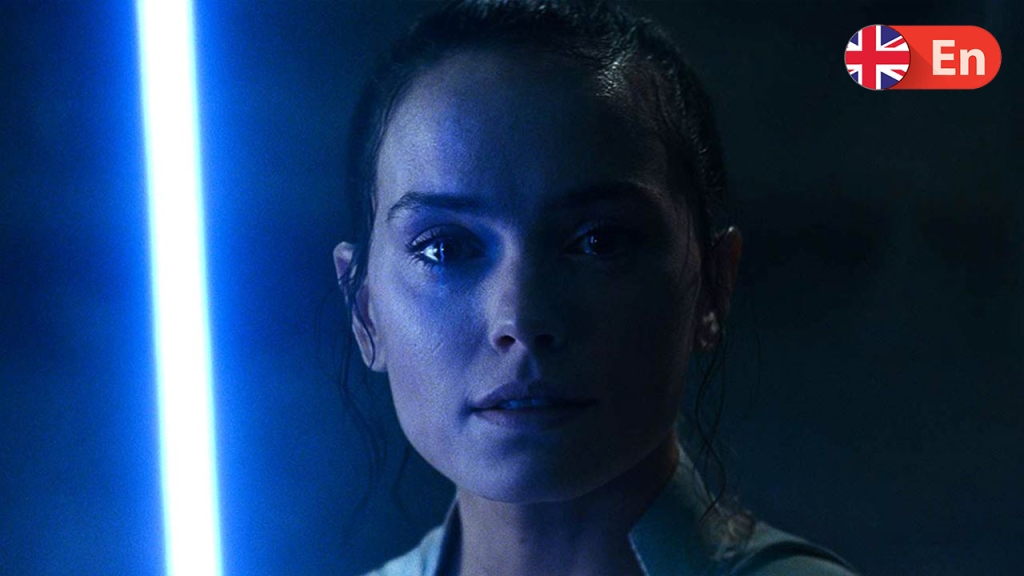“I think approaching any creative process with [making fandom happy] would be a mistake that would lead to probably the exact opposite result”
Rian Johnson, in “INDIWIRE”, 16 dec 19
Dec 2019
The saga it’s ended, but the story will live on forever. And the history, you know, is written by the winners.
In Star Wars: Episode IX – The Rise of Skywalker the only winner is certainly J.J Abrams who comes back from the future after a two years-and-a-chapter exile, meanwhile his colleague Ryan Johnson won the sequel trilogy bet with his The Last Jedi.
In two word, TRS is a conservative film and as such will particularly appeal to those who so far have not accepted the new narrative arc.
TRS it’s a trap, the rise of the reactionary audience that as palpatine has pulled the strings of the whole thing. A movie that largely rewrites the innovations of its predecessor, cancelling the reforming and iconoclastic impetuosity of TLJ and abjuring the foundations of narrative progress laid by Johnson. The result is inevitably a trilogy written film by film, without a premeditated linear storyline. A product that undermines the high concept nature of a complex universe like Star Wars, offering a jumble of nostalgia and precariousness of meaning that the audience, but also the protagonists of the new trilogy, did not deserve.
“I think approaching any creative process with [making fandoms happy] would be a mistake” says Rian Johnson, this month in theaters with his new film Knives Out. To associate narrative quality with audience happiness often, to paraphrase Johnson, leads to the opposite result.
Precisely for this reason I find myself blasting a film that I’ve been waiting for so long and a trilogy that I’ve loved and defended with a lightsaber treated until today. I was there when very few people could take the hit of The Force Awakens, I knew that after all it was a chapter aimed at bringing together several generations of audiences and that the real challenge would be the next film. So I rejoiced when I confirmed that TLJ could be said to be an additional piece in a saga that was apparently bent on itself, something no one had ever said before and an offering of courageous and unexpected values and ideas. Always for all these reasons I seriously believed in the perspective of TRS.
First came the truth about Rey’s origins, a truth we didn’t need because TLJ’s answer was more than enough. Then came the constant feints of a spineless film that throws in events that are an end in themselves and have no real consequences for the fate of the characters. The few tears are wiped away with a denial in the next scene, the solid convictions dismantled with resolutions that are often not credible or completely wrong.

A movie written for the fans. So Rose remains little more than wallpaper, Luke knew everything and did nothing, the Knights of Ren reduced to a futile skit, unlimited enemy resources as inexplicable, characters disappear and entire situations are reset. We return to the simple struggle between Good and Evil and the Jedi Order, so much questioned in the previous chapter, back to triumph with no chance for discussion; the Skywalkers, despite the fact that the heroine of the story bears a different surname, once again restore the balance in the Force (and in the Saga). But history, as we have said, is written by the winners, so doesn’t matter if in the final scene there is no place for the ghosts of Anakin and Ben Solo, the sides of the Force remain clearly distinct where we wished for a range of grays that would have opened the door to as many possibilities.
The horizon suddenly became flat, the galaxy impossibly small. An entire film could have been devoted to the Rebels regaining credibility and energy, a grand finale would have opened up a universal Force within the reach of all and not just one legacy.
Rey herself comes to terms with an origin that she then decides to deny in a final scene where, with roles reversed, something could have been said. If she had been the one to die and we had seen Ben go to Tatooine in her place to bury the past, we would have witnessed the “rise of a Skywalker” but also the realization of the dream shared for a moment by the two counterparts.
The yellow lightsaber is the real element that definitively betrays the farce, what should have been yet another twist to prove an overcoming of the past is instead an anchor firmly grounded and immovable, a stale and didactic return to the origins that provides for a Positive Side of the Force determined by a conservative and dynastic elite, a bit like the Star Wars audience.


Lascia un commento